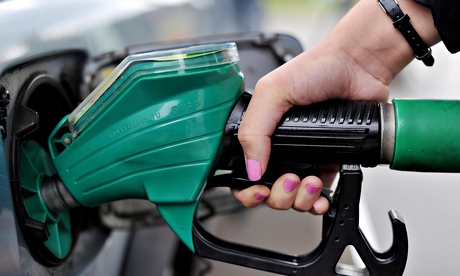
Falling oil prices could be a decider in the coming general election, lifting the spirits of car drivers and pushing to one side thoughts of endless Osborne austerity.
What looked like a flash crash in the oil market is turning into a longer term depression that will delight businesses and households in every major economy.
Not only does it have the capacity to cut the cost in the UK of petrol, heating oil and the price per therm of gas, which tends to track the oil price, the falling price of crude does everything a chancellor might want – except promote climate change policies.
A report by Opec forecasting that demand for oil will fall next year and a separate study showing US stockpiles growing were the trigger for another round of selling on the oil markets on Wednesday, driving prices down further. The cost of a barrel of Brent crude has already fallen by 40% since the summer and the outlook for next year means it will keep heading south for some time.
In 2012 a litre of unleaded approached 140p a litre. Now it is heading towards 115p. Goldman Sachs and Merrill Lynch analysts have argued it will go as low as £1 next year.
Predictions can be wrong of course. But for election purposes that might not matter. And to discover why, analysts need only look at the last year’s household spending habits.
As Robert Chote, the head of the Treasury’s independent forecaster the Office for Budget Responsibility, told MPs in his testimony following last week’s autumn statement, Britons have spent beyond their means during the recovery – running down their savings and adding to their debts.
More precisely he said real consumption grew faster last year than real earnings did. The gap was bigger than at any time in the last 15 years.
Part of the reason for the OBR prediction of a slowdown in growth over the next parliament is that this trend cannot continue without higher earnings and that doesn’t look likely at the moment.
So along comes the falling oil price to the rescue. You don’t need higher incomes to expand consumption if you have falling costs.
And if consumers sniff a prolonged period of low petrol prices, they might spend more freely in other areas. They might treat themselves to a bigger, brighter Christmas and possibly be more forgiving of the chancellor’s austerity drive.

